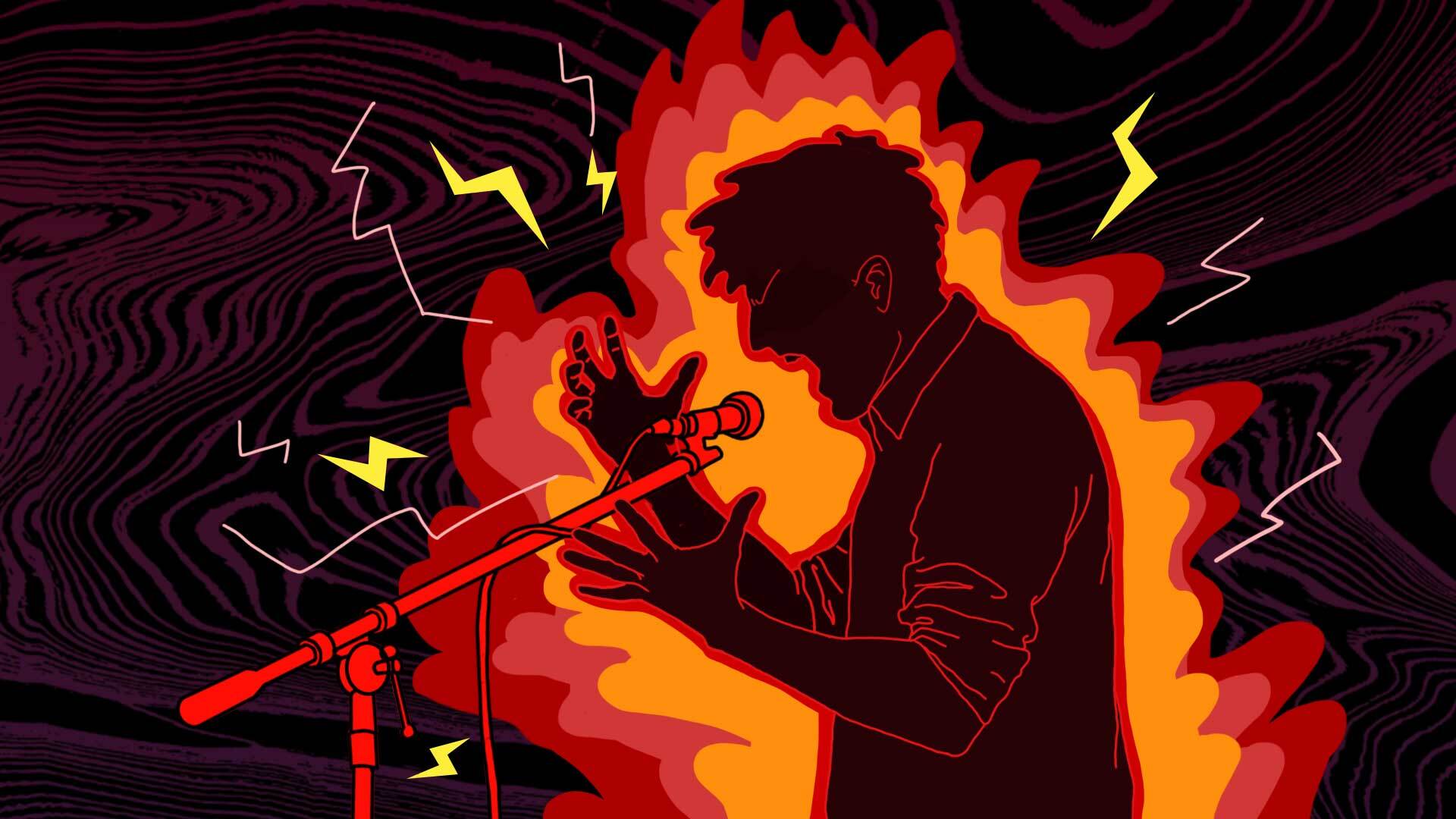There’s no shortage of songs written out of love. Happy, heartbroken, or ranging anywhere on the sappy spectrum – we’ve heard it all before. What about music written out of a place of pure, unabashed pettiness? What about musically sticking it to the man? From disagreements with music labels to satirizing entire music genres, the greatest musicians have never hesitated to tap into their messiest sides when composing. Whether they’re targeting one specific person – or a whole system – here are four songs written out of sheer, unadulterated spite.
Prince’s Slave
Representative of an entire era of his career, Prince’s Slave appeared on his 1996 album Emancipation. The album was Prince’s first release after an eighteen-year long battle trying to escape the clutches of Warner Bros. The label had originally signed him when he was just 18 years old, and what followed were nearly two decades of stifled creative freedom, legal battles over music rights, and general animosity.
Prince was very open about this dispute with Warner Bros. He wanted to be able to release more music whenever he wanted and to own the original master tapes for his albums. During this publically tumultuous time, the singer appeared in public with “Slave” written across his face and changed his name to an unpronounceable symbol, which meant everyone had to refer to him as The Artist Formerly Known as Prince. “The first step I have taken towards the ultimate goal of emancipating from the chains that bind me to Warner Bros. was to change my name from Prince to (symbol),” he said in a press statement. “Prince is the name that my mother gave me at birth. Warner Bros. took the name, trademarked it, and used it as the main marketing tool to promote all of the music that I wrote.”
Prince eventually settled with Warner Bros. and released Emancipation – a celebratory album that was entirely within his creative control. The song Slave, which opens with the lyrics “Everybody keeps tryin’ to break my heart / Everybody except for me / I just want a chance to play the part / The part of someone truly free”, is an unsubtle call back to his turbulent legal issues and an obvious call out to his former label.
Van Morrison’s Payin’ Dues
Not slated for official release for decades, Van Morrison’s album is known colloquially as his Contractual Obligation album, also sometimes referred to as Payin’ Dues. Finally released in 2017 as part of the 3-disc The Authorized Bang Collection, the 31-song album is a clear middle finger to Bang Records, the label he was desperate to get out of his contract with. The songs are improvised, played on an out-of-tune guitar, and mostly nonsensical.
Morrison’s contacts at Bang Records were heavily involved with organized crime, and began threatening mob hits on him and holding off on paying him his dues. Luckily, around the same time, Warner Bros. expressed interest in taking Morrison on. There was only one catch – according to his contract, Morrison still owed Bang a final thirty-one songs. And so was born Payin’ Dues. Song topics range from the glaringly obvious, like The Big Royalty Check, to the completely bizarre, like Ring Worm – a song about having a ringworm, or Want a Danish – a song about, get this, wanting a danish.
While not necessarily easy listening, this revenge album offers interesting insight into the wild west world of the 1960s American music industry, and is certainly a classic example of a spite-fueled oeuvre.
Harvey Danger’s Flagpole Sitta
The 1997 song that propelled Harvey Danger into short-lived fame was originally written to poke fun at the Seattle alternative scene which they were part of. The tongue-in-cheek lyrics were meant to mock the put-on laissez-faire attitudes of the era’s alt music scene. Evan Sult, the band’s former drummer, told A.V. Club, “I think it’s a really true version of what it felt like to be alive, at least in Seattle [when] we actually wrote it. The ironic remove and the innate suspicion of both the mainstream culture and the alternative culture, and the yearning to be part of something, but not being able to get around the suspicion and the self-loathing. […] It’s both really upbeat and kind of savage and snarky at the same time.”
Regardless of how snide and snarky the band’s intentions were when writing the song, it backfired. Not only did it become a mainstream radio hit, but most people took the satirical lyrics at face value without realizing they were the very thing the song was mocking. As lead vocalist Sean Nelson tells it, “The best example of that I can give you is that literally hundreds of kids came up to me and said, ‘I got my tongue pierced because of that song.’ And they would show me and I sort of thought, ‘Well, that was not my intention.’ I wasn’t trying to give a boost to the tongue-piercing industry – I just thought that the idea in the song was that people are letting these sort of outward signifiers stand in for real kinds of rebellion, and isn’t that silly?”
Dixie Chicks’ Not Ready to Make Nice
In 2003, The Dixie Chicks openly criticized president Bush and the invasion of Iraq. During a promotional show in London, Natalie Maines took the mic and made the controversial statement: “We do not want this war, this violence, and we’re ashamed that the President of the United States is from Texas.” The immediate vitriol and backlash that followed was comparable to what we’d consider today to be a cancellation – radio bans and boycotts, and their music label urged them to apologize.
Instead, the Dixie Chicks doubled down and released Not Ready to Make Nice in 2006. While staying pretty universally relatable, the song does address the controversy with lyrics like “And how in the world can the words that I said send somebody so over the edge that they’d write me a letter saying that I better shut up and sing or my life will be over?”, directly referencing the death threats that the band had received. Considered by many to have been “braver than punk bands” for their daring comments, it’s no surprise that the Dixie Chicks held nothing back when writing Not Ready to Make Nice – a song so spiteful it almost hurts.
The famous May 2003 Entertainment Weekly cover.
While heartbreak and passion get their fair share of recognition, let’s not forget the songs that emerge from the most delightfully spiteful corners of the human experience. These aren’t about heart-wrenching love or soulful introspection – they’re the catchy anthems of grudges and eye-rolling. From standing up to music labels, to social commentary, to even defying the system, they’re cheeky, audacious, and unapologetic. Let’s give some air time to these deliciously snarky compositions that rewrite the rulebook of musical rebellion (except maybe that Van Morrison album, that one we can skip.)
Written and translated by Ari Mazur





















